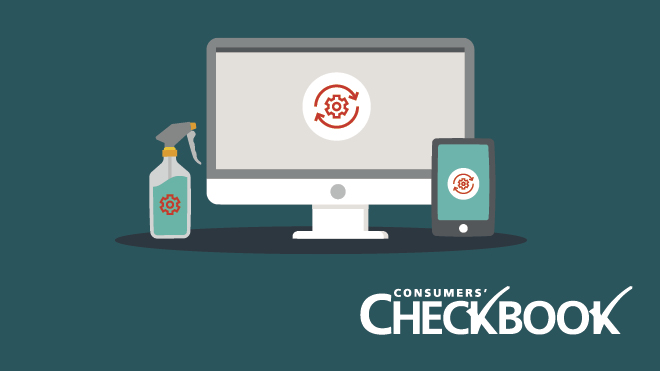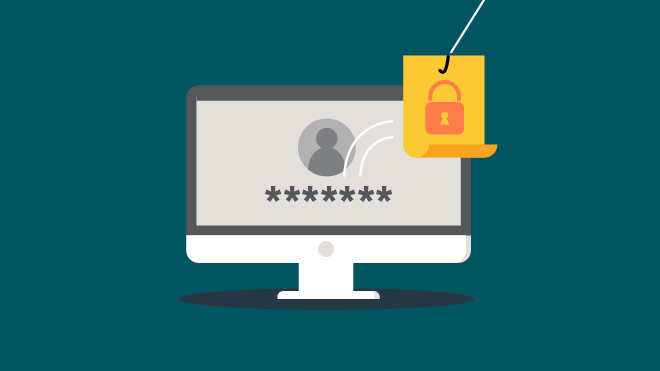
How To Protect Your Child From Identity Theft
Identity thieves don’t just victimize adults; they also target children. If you’re a parent, be aware of this very real threat and take steps to protect your kids.
About 1.4 million children in the U.S. — that's one in 50 — were victims of identity theft fraud, costing nearly $1 billion, according to a 2021 report by Javelin Strategy & Research. Dealing with the aftermath takes parents and guardians "a tremendous amount of time to resolve," the report noted.
Children's data theft is expanding due to increasing cyberattacks on school systems, where ransomware attacks hold districts hostage or expose valuable student data. In the past several years, some districts in Washington experienced data breaches.
Detecting Fraud
As adults, we often detect ID fraud by reviewing our accounting apps, bank statements, tax returns and credit reports. Children generally don't have such avenues for detection or understand the concept of a credit score.
For this reason, it's important to stay alert to when your child's identity is being used. If your child's name appears on any of these documents, it's a potential red flag that may indicate your child's identity is being used fraudulently:
- Notification of jury summons, parking tickets or driver's license renewals
- Credit card application or bill
- Collection notice
- Rejected tax returns or rejected government benefits application
In each situation, a bad actor could be using your child's Social Security number to either open a line of credit or conduct government business, such as collecting benefits.
"One of the biggest red flags would be a collection notice or call from collection agencies," said Eva Velasquez, President and CEO of the nonprofit Identity Theft Resource Center. "As a parent, you may be inclined to say, 'Well, this is just a mistake. You're asking for the wrong Jane Smith.'"
Call back to learn more. A follow-up may reveal someone misusing your child's Social Security number or other credentials.
"It's an easy crime to commit, and very lucrative," said digital security consultant Brett Johnson, a former cyberthief who spent more than six years in prison and now hosts The Brett Johnson Show on YouTube.
Because the collection notices are sent to the criminals who created the fake accounts, "chances are the child victim isn't going to find out about the crime for years."
How Scammers Steal Kids' Identities
Most kids don't have credit cards or sizable assets, but their Social Security numbers are valuable to identity thieves. Scammers use stolen Social Security numbers to create "synthetic identities" to commit fraud.
"A child's Social Security number is a clean, unused, government-approved credential that doesn't have anyone else's bad credit on it, so the thieves love it," said cybersecurity expert Michelle Finneran Dennedy, CEO of PrivacyCode. "It's a fresh asset no one is looking at."
Sadly, most child identity theft is committed by family members or close friends. Nearly three-quarters (73%) of child identity theft victims personally know their perpetrators, according to the Javelin study. The perpetrator may even be a parent or guardian who may try to solve immediate financial problems by creating accounts in their kids' names.
However, as mentioned earlier, children's information is also more readily accessible due to cyberattacks and online information dumps.
How Scammers Use Kids Identities
Johnson explained how fraudsters build synthetic identities:
"I take that stolen Social Security number, attach any name to it I want, an adult date of birth, an address and phone number — and then I go apply for credit," Johnson said.
"That will create a credit report. It's a very thin file, no credit history whatsoever, but at least that person — that synthetic person — is now in the credit bureau system," he said.
The fraudsters use that fictitious identity to get a few credit cards and make on-time payments to pump up the credit score. With a good score, they apply for cards with high credit limits, go on buying sprees, and ignore subsequent bills.
Long-Term Effects
In many cases, victims don't discover what's happened until they're old enough to apply for credit, an apartment, insurance, or even a job, and are denied due to info in their credit reports. Your child may even find out when turned down for a student loan.
"If you don't discover the theft until you're a young adult, it could be that you've taken out several credit cards and have failed to pay them," Dennedy said.
Dennedy told Consumers' Checkbook her daughter's identity was stolen when she was eight years old. Based on the synthetic identity created by the criminals, the young girl both had a job and purchased a yacht.
Because the crime was spotted early and was so outrageous, it was easy to unwind. That's not always the case.
For this reason, the FTC recommends checking to see if your child has a credit report by age 16. This way, you have a few years to unwind any damage before age 18, when many young adults submit applications for jobs, an apartment rental, car loan or a college loan.
How To Protect Your Children
You can't eliminate the threat, but there are steps you can take to make things more difficult for identity thieves.
1. Freeze Your Kids' Credit
Theoretically, a child should not have credit files — but may if someone opened an account using your child's name.
"Freezing your child's credit is one of the most robust protections you can take as a parent," Velasquez told Consumers' Checkbook. "It stops someone who has access to your Social Security number, and other credentials, from opening new lines of credit."
TransUnion offers an online Child Identity Theft Inquiry Form to start the process of a freeze. Experian allows you to use an online form to see if a report exists, add a fraud alert for a minor or add or remove a minor's credit freeze. Equifax offers a form to print and send.
Through these links you can open, then freeze a credit file for your child so scam artists can't open new lines of credit. Requests for new credit will be declined.
To create or make changes to a minor's credit report, you'll likely need to send the bureaus copies of identification, plus documents that verify your legal right as a child's parent or guardian to make decisions.
2. Remedy Damage Done
On average, dealing with child ID theft takes four hours longer than trying to resolve adult identity theft, according to the Javelin study.
"Because child ID fraud is so difficult to detect, it's not surprising that it takes much longer to resolve than traditional ID fraud affecting adults," the report noted.
If your child's credit report informs you of a fraudulent account in your child's name, contact the companies' fraud departments and request an account closure. The FTC recommends getting written confirmation that your child isn't financially or legally responsible for the account.
You'll also need to contact the three credit bureaus to request removal of the fraudulent account from your child's credit report.
In the event of a data breach, Velasquez cautions parents that their child's identity credentials were likely already stolen. It's important to lock them down where you can.
"If you've provided (your child's credentials) to anyone — a school, a medical provider, the list goes on and on — there's a very high likelihood that that data has been compromised and the thieves already have access to it," she said. Keep a close eye out for the red flags listed earlier and act quickly if you notice anything suspicious.
For further information on school data breaches, see the Department of Education for guidance.
3. Report Suspicious Activity
If you suspect your child has been the victim of identity theft, contact the Identity Theft Resource Center. You can talk one-on-one to a trained counselor at 888-400-5530 to help you develop a more detailed plan and take steps to protect your child.
Resources
About Consumers' Checkbook
Puget Sound Consumers' Checkbook and Checkbook.org are a nonprofit organization with a mission to educate and help consumers. Checkbook also evaluates local service providers — home improvement contractors, doctors, dentists, veterinarians, stores and more. It is supported by consumers and takes no money from the companies it evaluates. BECU members can try Consumers' Checkbook for 30 days for free and can get 50% off their annual subscription.
The above article is intended to provide generalized financial information designed to educate a broad segment of the public; it does not give personalized financial, tax, investment, legal, or other business and professional advice. Before taking any action, you should always seek the assistance of a professional who knows your particular situation when making financial, legal, tax, investment, or any other business and professional decisions that affect you and/or your business.



